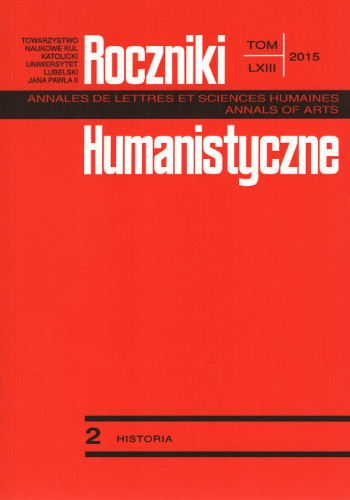


Keywords: epistemic frameworks; naturalism; supernaturalism; artificialism; methodological naturalism; Jodkowski’s condition
This paper investigates putatively plausible arguments for methodological naturalism. The analysis sets out to show that there are no good reasons for accepting methodological naturalism as a cornerstone of contemporary science. Neither any known fact, nor any line of reasoning, provides an irrefutable rationale for such a form of naturalism.
More...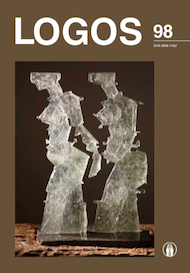
Keywords: Daukantas; Herder; Kosellek; vigilance; concept of culture; language; nation; history;
This article investigates how the emerging term of “culture” was conceptualized in the works of the famous Lithuanian historian Simonas Daukantas (1793–1864). He was the first Lithuanian nineteenth-century historian who wrote in his mother tongue. Although Daukantas was the follower of Johann Gottfried Herder (1744–1803), who was the first to establish “cultura” as a term (die Kultur), Daukantas did not use the term “cultura” to signify the concept of culture as it is known today. The article shows that in his Polish texts Daukantas uses the term “civilization” in place of “culture” and this word is found in his dictionary Didysis lenkų–lietuvių kalbų žodynas (The Great Polish-Lithuanian Dictionary ~ 1850–1856). In Dictionary he translated the term “civilization” from Polish to Lithuanian using the word vigilance (“akylumas”): “Cywilizacya” became “akylumas”, the verb cultivate: “Cywilizować” became “akylinti” and the adjective vigilant: „Cywilizowany” – “akylas”. Using Reinhart Kosellek’s theory on the history of concepts, this article discusses why Daukantas chose the word vigilance („akylumas”) in place of the concept of culture.
More...
Keywords: the history of the city of Lodz in the 20th century; Polish Army in Lodz; the economy of the city of Lodz; Lodz in the interwar period
The article describes the role of the Polish Army in the economic life of the city of Lodz in the years 1918–1939. In the city were stationed many military units and institutions at that time, thanks to which the Lodz garrison belonged to one of the largest in Poland in the years of the Second Polish Republic. The army was an important factor in the economic development of the city. Military units were shopping on the local market many different products necessary for their normal functioning. For example, the army was buying: items of equipment, food, draft animals, building materials, furniture and other elements of barracks equipment. Orders placed by the army and private purchases of soldiers ensured work for a large group of workers and craftsmen. Economic benefits from the presence of the army in the garrison in Lodz were also had by the shoemakers, tailors, hairdressers, restaurateurs, and owners of cinemas and theaters. The owners of private tenements had also large profits for renting apartments for officers. All these factors meant that the municipal authorities were interested in stationing as many military units as possible in Lodz, which had a significant impact on the city’s economic development.
More...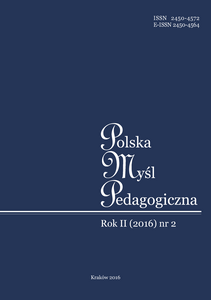
Keywords: Neo-Thomism; beauty; art; aesthetic education; artistic education; humanism;harmony; objectivism; Kazimierz Kowalski; Karol Górski; Barbara Żulińska
Beauty, a property of existence in the Neo-Thomistic view, allows one to perceive it as a property of reality and of human artefacts, including art. It can be found in human behaviour and in the tradition of culture in the form of harmony, perfection and brilliance. An examination of beauty should be subject to the principal rules of study in metaphysics. Beauty is an important factor in the development of personality: it raises and ennobles. The love of beauty incorporates rest and respite, which are necessary for human development. Not being subject to the virtue of prudence, art itself does not seek to make man better, because it is all about creating a work of art. Neo-Thomists see a conflict between morality and art in this fact; the risk does not occur when the artist takes ethics “as his or her own”. In this case, he or she unknowingly creates ethical works or art. Art is undoubtedly of great social importance and it should fulfil an important social mission through aesthetic education by making available to the widest possible group of people truth, beauty and goodness.
More...
Keywords: Neo-Thomistic pedagogy; perfection; virtue; efficiency; morality; upbringing
The article is based on the category of perfection. The author begins by symbolically showing the origin of this concept in philosophical thought: the sources of the concept as well as the evolution of various definitions and conceptualisations of perfection. Then, she points to the relationship between excellence and concepts related to education (kalokagathia, paideia). The main purpose of this article is to situate the category of perfection in Neo-Thomistic thought. This takes place in such areas as: upbringing, morality, purposes of education and purposes of life. Among the works of Polish Neo-Thomists, the author seeks appeals to perfection, forms of its perception and the scope of this category. The analysis chiefly aims to show the relationship between the concepts of perfection, virtue and efficiency.
More...
In permanently introducing this new section to our periodical, we wish to call the reader’s attention to a unique approach we are consciously taking. In a desire to identify impending foci in our field, we have invited the youngest of our colleagues – MA and PhD candidates in social work – to act as our reviewers. Furthermore, considering the vast multitude of scholarly articles published annually, we have asked our students to primarily focus on this segment which is more likely to reflect the most recent findings. That said, we have not set a strict date range in the hope that our reviewers will freely discover or recover studies which might have been overlooked heretofore. Joanna Ciągło, Hoven, H., Ford, R., Willmot, A., Hagan, S., and Siegrist, J. (2014). Job Coaching and Success in Gaining and Sustaining Employment Among Homeless People, Research on Social Work Practice, 26(6), 668-674. Sylwia Butkiewicz, Sôderfeldt M., Sôderfeldt B., and Warg Lars-Erik. (1995). Burnout in Social Work, Social work, 40(5):638-646. Michał Gajewski, Weinberg M. and Taylor S. (2014). ‘Rogue’ Social Workers: The Problem with Rules for Ethical Behaviour. Critical Social Work 15(1), 74-86. Recenzja książki: Prekariat. Perspektywa katolickiej nauki społecznej, red. J. Mazur, Ł. Marczak, Wydawnictwo Naukowe Uniwersytetu Papieskiego Jana Pawła II w Krakowie, Kraków 2017, ss. 229. ISBN: 978-83-7438-597-8. Dr hab. Dariusz Adamczyk prof. UP, Uniwersytet Pedagogiczny w Krakowie.
More...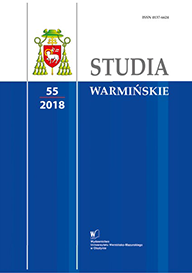
Keywords: Europe; Christianity; projects of integration; unity; spirituality;
The European Union came into being in 1993, under the Treaty of Maastricht signed in the previous year. Its creation was a result of a long process of European integration which was achieved mostly in its economic and social dimensions. Currently, the emphasis seems to be placed on the political character of the union, as demonstrated by the growth and strengthening of the range of its institutions. However, what escapes our attention is the spiritual integration, which should become the foundation of any attempts at unification. This is because the nature of integration is not only economic and political, but, above all, spiritual; though we should remember that it cannot be brought about at the expense of quashing our cultural, religious and ethnic differences (Muszyński H.J., 2002, p. 28.46–48).
More...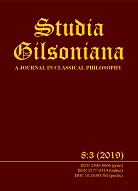
Keywords: Immanuel Kant; religion; faith; truth; practical reason; God; immortality; will; morality; intellect;
The subjective faith, in Kant’s approach, is a way of recognizing truth. This method is justified by subjective reasons, with the simultaneous lack of objective ones. What is recognized in the way of faith as truths are the postulates of practical reason regarding the existence of God and the immortality of man. The subjectivity of faith is expressed in the fact that it is a disposition, state, principle of mind (habitus) in recognizing truth in what is to be assumed as a necessary condition of the highest good which is the object of the will. Since faith belongs to the moral order, it is sometimes called a moral faith. Its task is to determine the will on the basis of moral law. As a way of recognizing the postulates of practical reason as true, faith takes a form of judgments stating the existence of these postulates. For this reason, the subjective faith is an act of the intellect, because it is the intellect that is entitled to state truths. Kant calls the subjective faith a pure practical rational faith. This faith is the principle of the intellect whereby it states that one should accept the conditions of the highest good in view of the practical imperative to realize this good. The structure of the subjective faith, according to Kant, corresponds to its object. However, in order to recognize its object, the faith does not require any additional conditions in the form of, for example, grace, but it is entirely actualized by virtue of human natural abilities. Therefore, Kant’s rational faith is totally a natural faith.
More...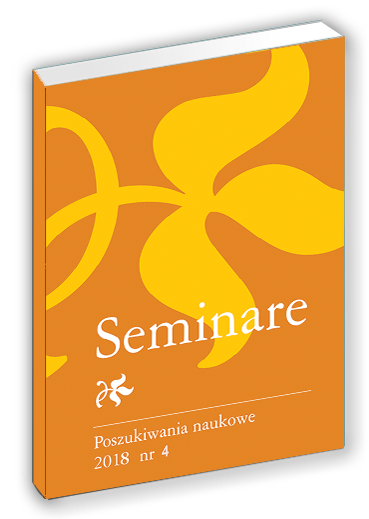
Keywords: patriotism; homeland; virtue; morality;
The aim of the article is to determine the place of patriotism among other universal values and a philosophical reflection on its current formula. The analysis is based on the classical philosophy of Aristotle, Thomas Aquinas, J. Maritain, E. Gilson, J. Woroniecki, J. M. I. Bocheński, M. A. Krąpiec and John Paul II. The article consists of two parts. Part 1 poses several questions concerning patriotism in the light of ongoing cultural transformations. Part 2 deals with patriotism as a virtue according to classical ethics to propose answers to these questions.
More...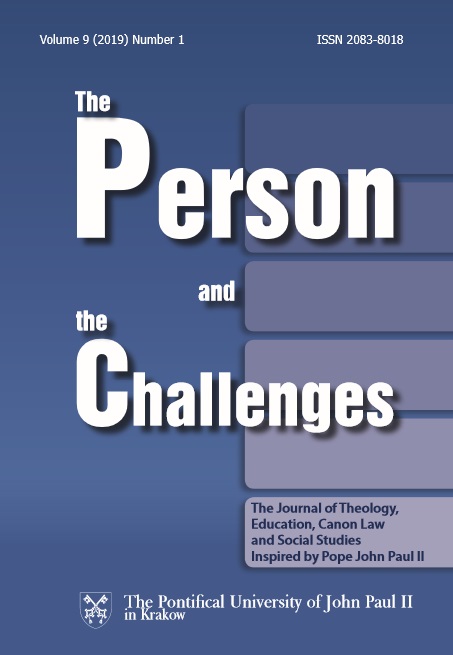
Keywords: person;upbringing;anti-pedagogy;personalism
According to anti-pedagogy, any form of upbringing aimed at something or someoneonly masks the object of the educated, making them essentially puppets, appropriatelycontrolled from without. Any purposeful approach to upbringing appeals to attributesthat make the pupil not turn out to be what he/she is, but what his/her educators wouldwant him/her to be. This approach is in direct contradiction to personalistic pedagogy,which posits an ultimate reality and value in personhood by emphasizing the significance, uniqueness and inviolability of the person, as well as the person’s essentially relational or social dimension. By emphasizing the autonomous value of a human beingas a person and in propagating this with full affirmation, one is thus postulating thatprograms of activities supporting its development are to be subordinated to personaland spiritual values, and not to economic and technical values. This article presents thecontemporary discourse between anti-pedagogy and the personalistic pedagogy witha special emphasis on Polish authors.
More...
Keywords: Criticism; mass media; social media; receivers; impact
Scientific objective: The purpose of this article is to characterise the discourses occurring in social media concerning people representing specific political parties and ideological circles, and presented by other media as authorities. It was assumed that this aim will be achieved by using a case study of three Facebook profiles: “Żelazna Logika”, “Raz prozą, raz rymem – walczymy z propagandowym reżimem”, “SokzBuraka” and “Prawicowa Rzeczpospolita Ludowa”. Research methods: The qualitative discourse analysis was used as a research method based on selected data obtained through the use of the Atlas.ti software. Results and conclusions: The obtained results indicated the presence of critical discourse towards: 1) people recognised by mainstream selected media as personal authorities, 2) institutional authorities. On their basis, it was proposed about the possible location of these profiles in the process of political communication. Cognitive value: The problem raised provides cognitive value on the subject of existing political and ideological discourses in social media being in opposition to mass media supporting selected personal and institutional authorities.
More...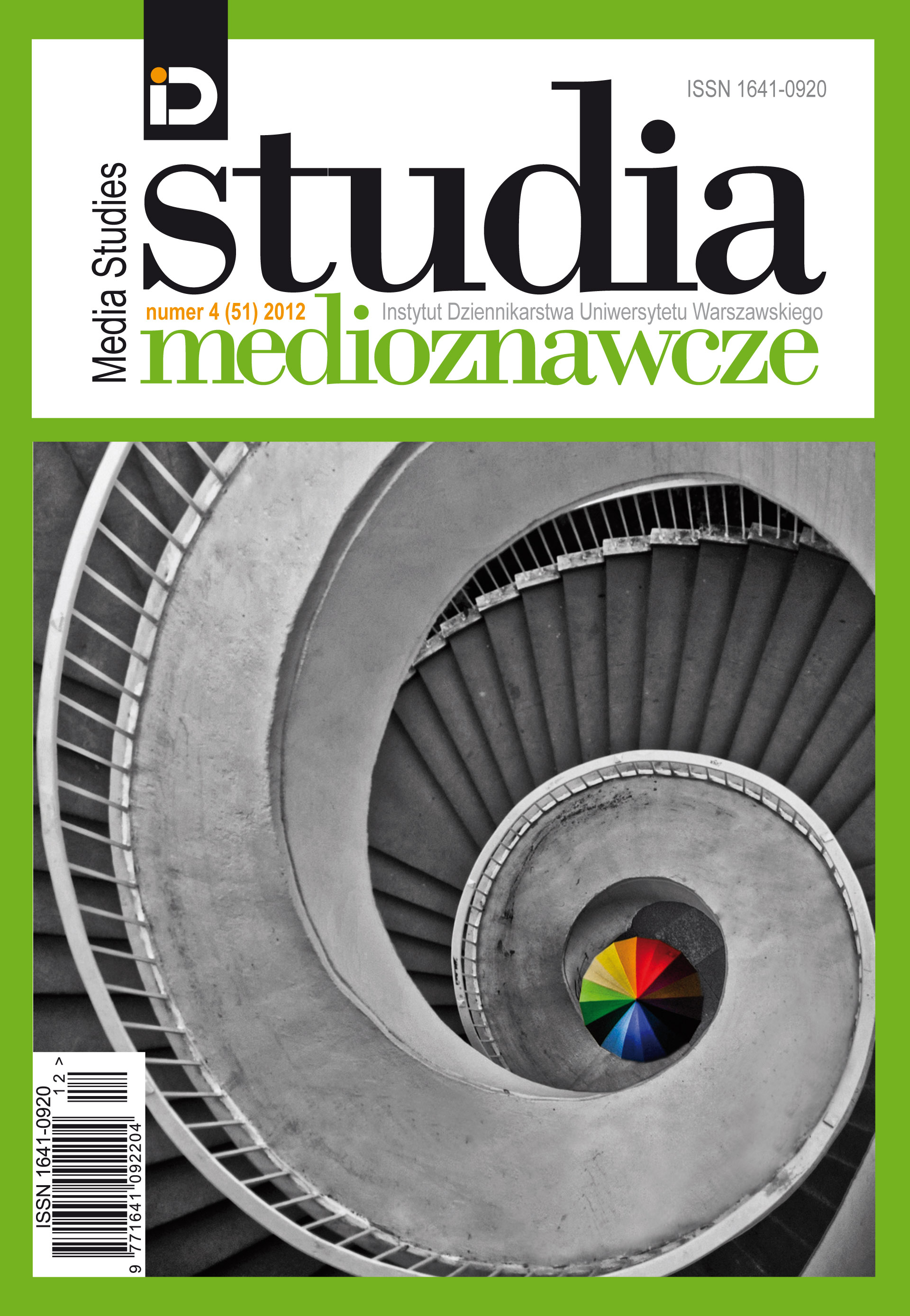
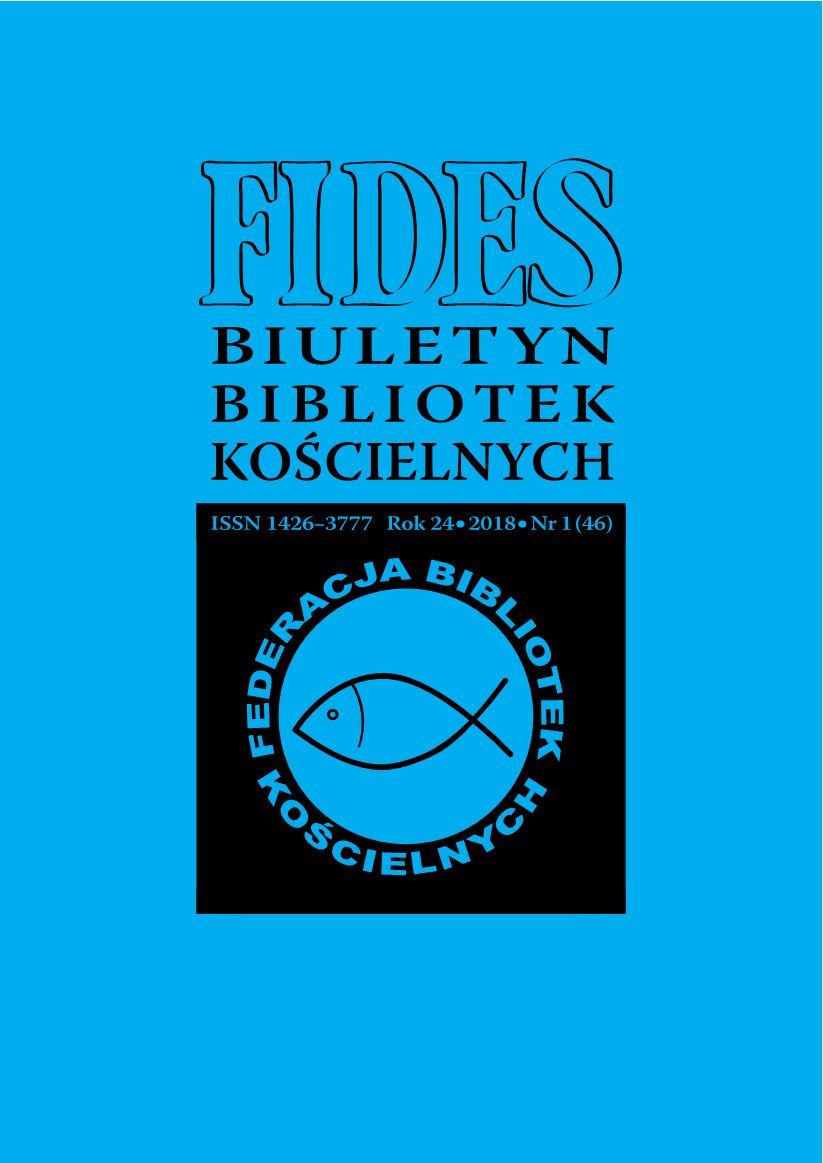
Keywords: Catholic Univeristy of Lublin;Library of University of Lublin
More...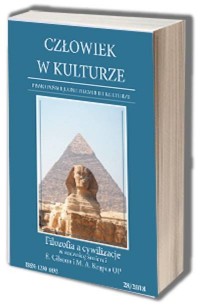
Keywords: civilization; culture; philosophy; person; dialogue;
The multitude of civilizations comes from the multitude of methods, principles and goals that human societies set themselves. These methods, principles and goals may be so different that they influence not only the emergence of different civilizations, but also the fact that these civilizations will remain in conflict with each other, sometimes even in an open war. The solution is not to create a single world civilization, because civilizational diversity is a historical value through which nations mature and come to self-awareness. Rather, we should look for non-civilization criteria, which are provided by classical philosophy. It grows out of a realistic concept of being and personalistic concept of the person, and allows civilizations to confront each other by means of dialogue, which is based on the three classic values of truth, goodness and beauty.
More...
Keywords: Millennials; happiness; culture; civilization; psychology; nihilism;
The article describes the situation of American students from the turn of the century. To define them, the author uses the term: Millennials. Millennials’ constructs cannot reckon with a moral order of virtues, much less admit that there is some sort of objective, universal truth of their human being and of Being in general. Still, their nagging dread intimates that something is missing, and although their constructs are felt to be inadequate, they cannot find the real happiness they desire. They may endeavor to “hope against hope” for happiness, but, finally, hopelessness prevails. For the millennials, happiness has been lost, and a generational culture without authentic happiness bodes very ill for the civilization of which it is a part.
More...
Keywords: rhetoric; persuasion; sophistry; Sophists; Aristotle; Stoics; culture; education;
In antiquity, we encounter three main concepts of rhetoric: sophists, Aristotle and tables. These concepts are significantly different, although they have in common that they concern the ability to use the word. Rhetoric, according to the sophists, is the art of persuasion with the word, but regardless of the truth; according to Aristotle, it is the art of finding true (probable) arguments capable of persuasion to which the viewer agrees; according to the Stoics, it is the eloquence possessed by a righteous man morally, i.e. one who will neither lie nor use the word art for evil purposes. It is obvious that these concepts cannot be mechanically combined and described as one concept of classical rhetoric, because each of them is based on a different philosophical system. The most “rhetorical” seems to be the concept of Aristotle, while the great didactic value is contained in the rhetoric of the stoics, while the rhetoric of the sophists is not really rhetoric, but rather sophisistics, which today hides behind various forms of manipulation. One thing is certain: within the framework of the culture of words and logical culture, it is worth constantly returning to these three ancient rhetoric, because they still have a unique educational power.
More...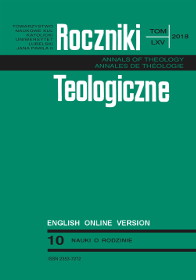
Keywords: religiousness; morality; youth; drugs; addiction
A steady increase in the use of intoxicants is being confirmed by empirical studies. One of the factors conducive to drug initiation is the rejection of moral norms associated with religious beliefs. The article presents the relations established between the youth’s declared religiousness and their statements on psychoactive drugs and using them. The data were collected through questionnaire surveys carried out on a randomly selected sample of high school students from the Podkarpackie region (n = 2273). The research results suggest that the process of secularisation and relativisation observed among the youth, particularly in the sphere of morality, may weaken critical attitudes towards psychoactive substances, both those legally allowed and those prohibited by law. Moreover, the links between the declared religiousness and such variables as: time spent on the Internet, acquaintances who are drug users, being raised by a single parent or both parents as well as the frequency of conversations between respondents and their parents were established. The connections between these variables are statistically significant, so it can be concluded that these distinguished variables influence the diversity in religiousness stated by participants and consequently the liberalisation of the youth’s attitudes towards drugs.
More...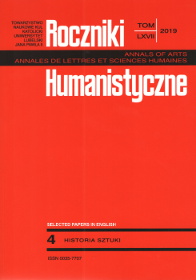
Keywords: Zofia Nałkowska; Hanna Nałkowska; Polish sculptors; Węże i róże; plastic arts; literature; novel about artist
The Polish version of the article was published in Roczniki Humanistyczne vol. 65, issue 4 (2017). The article focuses on Ernestyna Śniadowiczówna, the main character in a novel by Zofia Nałkowska, Węże i róże [Snakes and Roses] (1913). The main purpose of the work is to show that the character had its real counterpart in Zofia’s younger sister, the sculptor Hanna Nałkowska. The words of Zofia herself were crucial, who in her Diary confessed that all her novels were autobiographical to some extent. Still, researchers have not paid sufficient attention to the significant similarities between Ernestyna and Hanna Nałkowska. Węże i róże is the only piece in the writer’s output in which she analyzed the issues related to art and pointed out some characteristics of the artist. Zofia was writing her novel when Hanna was entering the world of art. A comparison between Ernestyna Śniadowiczówna and Hanna Nałkowska, as well as the information from Zofia’s Dziennik and reminiscences of their friends show that the literary character is likely to be based on a real person.
More...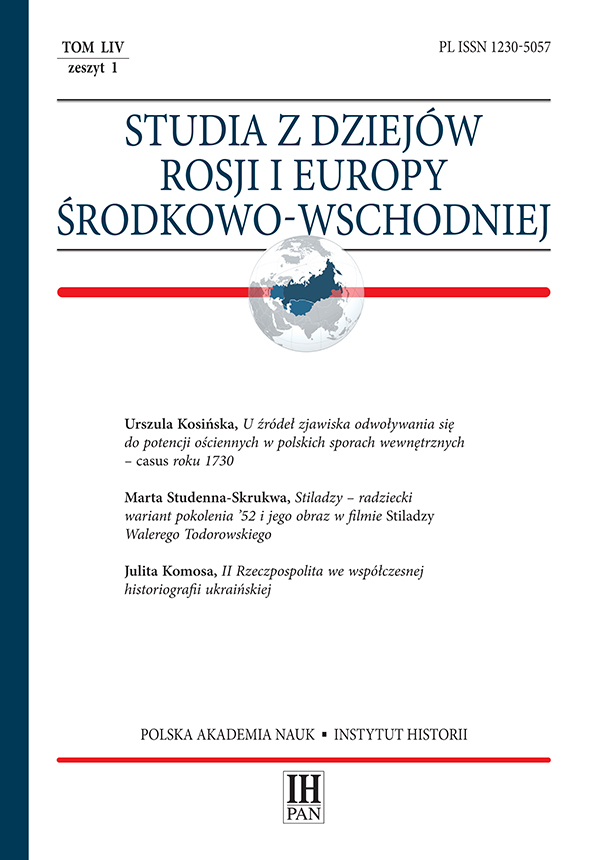
Keywords: border courts for the Kiev and Bratslav Provinces; Polish-Russian relations in the 18th century; first partition of Poland;
The functioning of the border courts established in the second half of the seventeenth century, which were to settle border disputes between the Polish-Lithuanian Commonwealth and Russia, depended mainly on the relations between the two states. The military strength of Russia, growing in the eighteenth century, as well as the progressing anarchization and weakness of the Polish-Lithuanian State had an influence on the functioning of border courts. It was also influenced by events related to the haidamaka rebellion, and Bar Confederation, which caused the suspension of their operation in the early days of the reign of King Stanislaw August. Another problem was the progressive expansion of the Russian state, trying to make the border areas of the Commonwealth an economic base needed to develop the lands conquered in Turkey. For this purpose, attempts were also made to use border courts in which the Polish nobility was requested to hand over several thousand Russian runaways as a condition to any concessions to the Polish nobility claiming their rights in these courts. The article presents – on the example of the Bratslav and Kiev Provinces – the collapse of the border judiciary which occurred in 1779, at the time of growing tension due to the policy pursued by Grigory Potemkin, seeking, if not partial annexation of the southern provinces of the Commonwealth, at least to establish a buffer zone between the two countries, which would probably be quickly absorbed by Russia. Attempts undertaken by the Polish side at the time to appoint a delimitation commission were combined with efforts to prepare a new ordinance of border courts that would guarantee their effective functioning. To this end, the Polish side unsuccessfully tried to make appropriate arrangements in the form of agreements between the two states.
More...